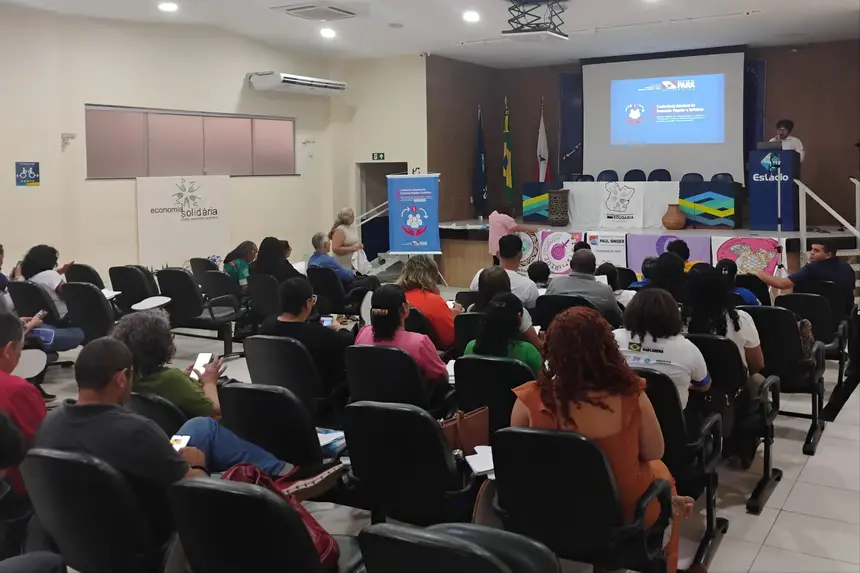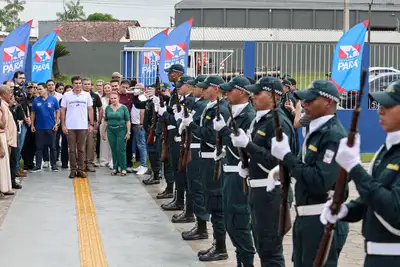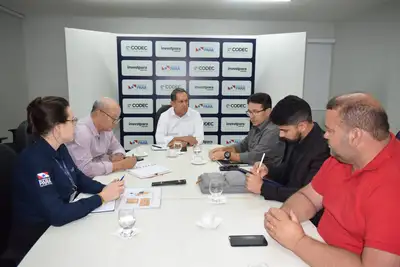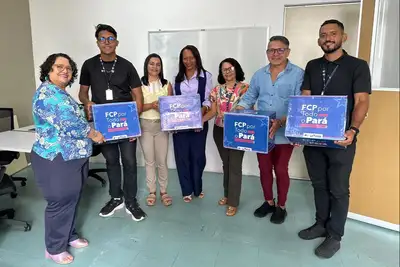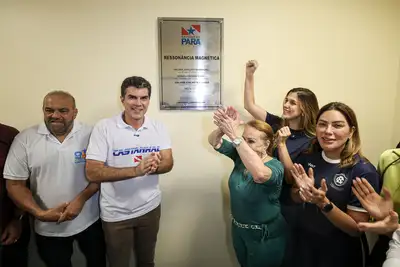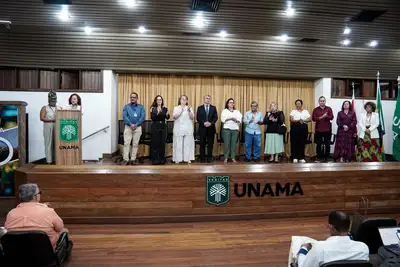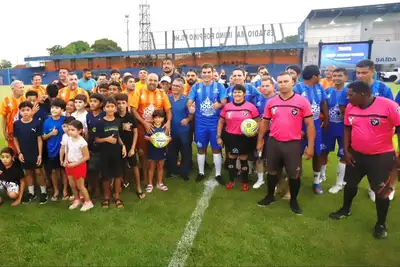4th State Conference on Popular and Solidarity Economy reinforces commitment to cooperativism in Pará
The exchange of experiences among different territories also enabled the identification of common challenges and solutions adapted to local realities.
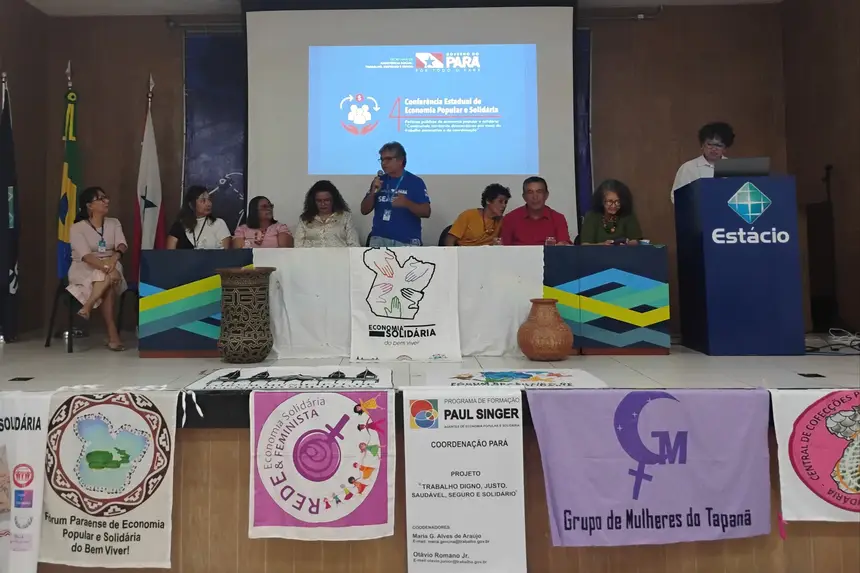
Focusing on strengthening public policies aimed at cooperativism and productive inclusion, the Government of Pará, in partnership with the Federal Government, through the Secretary of Social Assistance, Labor, Employment and Income (Seaster), held the 4th State Conference on Popular and Solidarity Economy (Conaes) on May 22 and 23, 2025.
The event brought together solidarity representatives, support entities, managers, and social movements from various regions of the State, in a space for listening, debate, and collective construction of guidelines for the sector.
Under the theme "Public policies for popular economy – Building democratic territories through associative work and cooperativism", the conference aimed to consolidate strategies that promote territorial development based on economic practices rooted in solidarity, self-management, inclusion, and sustainability.
"The conference provides a democratic space to discuss important topics that will be taken to the national level, themes that deepen according to the vocation of each municipality. This state conference is the culmination of the municipal conferences that occurred earlier, and from here we will choose the delegates who will represent the state of Pará at the National Conference on Popular and Solidarity Economy. Solidarity economy, in itself, strengthens with solidarity enterprises, which are groups and collectives that are there in everyday life, so that there is really a management model in which the consumer can have something more accessible. This discussion goes beyond: it is for people to be present in this debate, but also to strengthen the movement wherever it is," said Silvia Reis, coordinator of entrepreneurship and solidarity economy at Seaster.
On the first day, participants organized themselves to discuss and formulate proposals aimed at strategic areas such as access to solidarity credit, marketing, technical assistance, training, and strengthening of productive networks. The exchange of experiences among different territories also enabled the identification of common challenges and solutions adapted to local realities.
For Mariah Wanzeler, representative of the Lower Amazon Economy Forum, discussing solidarity economy is a way of inclusion for marginalized people in society, and it can be carried out jointly by the population and government.
"The Municipal Conference that took place in Santarém was of great importance for the unity of social movements, so that they could talk about solidarity economy. The State Conference is also a significant milestone for our region, especially for showing that there is popular and solidarity economy in the Lower Amazon, that there are people who are part of this production system and that it can be developed together with the federal, state, and municipal government. Because solidarity economy is not just a mode of production; it is a way of life, it is a choice that people have to have a better condition, a good quality of life, to include women in the productive environment, to include marginalized people or people who cannot identify with informal work," stated Mariah Wanzeler.
On the second day, the program was dedicated to the reading and final approval of the proposals consolidated by the groups. The approved guidelines will form the base document to be forwarded to the national stage of the conference, in addition to supporting actions of the state government aimed at strengthening the popular and solidarity economy in Pará.
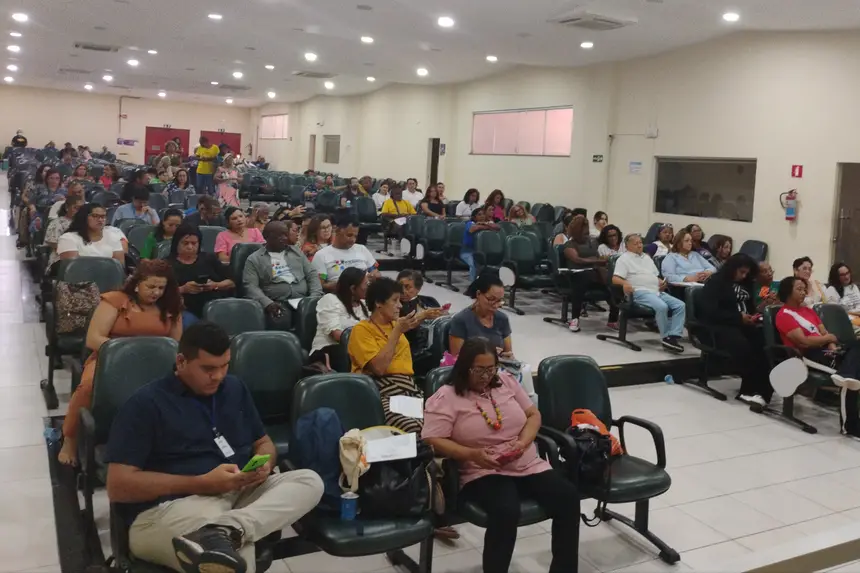
The conference also featured cultural presentations, and during the two days, about 50 people were present, divided among delegates, guests, and listeners, highlighting the importance of active listening and popular participation as pillars for the construction of effective and territorialized public policies.
"I came today to participate in the conference because I believe in the importance of developing public policies and solidarity economy that provide communities with sustainable protection, job and income generation, and the development of social mechanisms that offer support to families in processes that, due to numerous problems, do not reach them," said Anderson Miguel, representative of the Central of Popular Movements of Belém.
"This is an important moment for us to outline strengthening strategies and thus ensure more opportunities for conversation, in addition to fostering job and income generation for all those in need," emphasized Miriquinho Batista, deputy secretary of labor, employment, and income at Seaster.
At the end of the meeting, state delegates were elected to represent Pará at the National Conference on Solidarity Economy, which will take place later this year in Brasília.
*With the collaboration of Matheus Gomes/ Ascom Seaster


